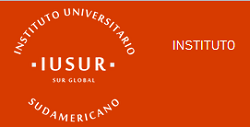Neuropsychological perspective
current trends in education
DOI:
https://doi.org/10.25087/resur9.10.a9Keywords:
executive functions, basic education plans and programs, academic, social and psycho-affective performanceAbstract
This work is a documentary study that aims to analyze the importance of neuroscience within the current panorama of educational innovation. Explore the importance of context and culture in the expected learning process of students, for their greater understanding and subsequent internalization in an effective way. The school and educators play a fundamental role in neurodevelopment (Mora, 2014), through which they become mediators between culture and the individual, so that the individual can transform knowledge into learning (Díaz, 2003). It is observed that, through the use of language, the teacher is the main facilitator of student learning. This is mainly based on the theory of Lev Vygotsky, who contributed to the understanding of child neuropsychological development, especially through the role of language in thought processes and its interaction with the learning process (Carrera & Mazzarella, 2001). Within these theories, interaction with other people in different contexts stimulates the development of mental processes and is mediated by language (Carrera & Mazzarella, 2001). Therefore, it is important to analyze how these paradigms are applied in the future of education, which are characterized by less need for the presence of students in a physical classroom and where virtual learning environments are promoted (Means et al. ., 2013). Being a descriptive study, it reflects on the way in which the paradigms proposed by Vygotsky are implemented within the new educational trends. Information and communication technologies (ICT) persist as innovative tools that, when used as teaching strategies, must be mediated by the teacher (Navarro, Cuevas, & Martínez, 2017). The teacher, being the facilitator of knowledge, promotes the acquisition of learning with a relevant meaning in the context of the student, giving it a meaning that allows them to internalize it (Díaz, 2003). There are theories that explain human neurodevelopment in relation to learning inside and outside the classroom, which manage to provide key knowledge that could contribute to the integration of innovative pedagogical techniques in an efficient way.
Downloads
References
Berg, B. & Lune, H. (2012). Qualitative Research Methods for the Social Sciences, 8th Edition. California State University, Long Beach, Hunter College: Pearson.
Cabero, J. (2015). Reflexiones educativas sobre las tecnologías de la información y la comunicación (TIC). CEF, 1, 19-27.
Cardona, G. (2002). Tendencias educativas para el siglo XXI. Educación virtual, online y @learning, elementos para la discusión. Edutec. Revista Electrónica de Tecnología Educativa, 15.
Carrera, B. & Mazzarella, C. (2001). Vygotsky: enfoque sociocultural. Educere, 5, 41-44. De Redalyc Base de datos.
CEPES. (1999). L.S. Vigotski: Su concepción del aprendizaje y de la enseñanza. Tendencias Pedagógicas Contemporáneas. Universidad de La Habana., 155-175.
Coll, C. (2004). Psicología de la educación y prácticas educativas mediadas por las tecnologías de la información y la comunicación. Una mirada constructivista. Revista Electrónica Sinéctica, 25, 1-24.
Coll, C. (2008). Aprender y enseñar con las TIC expectativas, realidad y potencialidades. Boletín de la Institución Libre de Enseñanza, 72, 17-40.
Collins, L. (2013). The role of sociocultural dimensions in innovation systems: the Gulf Cooperation Council. Northumbria University.
Claude, G. (2005). Historia del pensamiento administrativo. México: Pearson Educación.
De Vargas, E. (2006). La situación de enseñanza y aprendizaje como sistema de actividad: el alumno, el espacio de interacción y el profesor. Revista Iberoamericana de Educación, 39(4), 1-11.
Díaz, F. (2003). Cognición situada y estrategias para el aprendizaje significativo. Revista Electrónica de Investigación Educativa, 5, 1-13.
Díaz, F. (2008). Educación y nuevas tecnologías de la información: ¿Hacia un paradigma educativo innovador?. Revista Electrónica Sinéctica, 30, 1-15.
Diéguez, A., Ajila, Z., Velázquez, T. & Reyes, I. (2017). Las Tic En El Proceso De Enseñanza-Aprendizaje. European Scientific Journal, 13, No. 34, 269 - 283.
Ferreira, T. (2012). Neurociencia+pedagogía= neuropedagogía: Repercusiones e implicaciones de los avances de la neurociencia para la práctica educativa. Andalucía, España: Universidad Internacional de Andalucía.
González, A. (2014). Interdisciplinariedad de la neurociencia: Vygotsky y las bases biológicas del lenguaje.
González, A. (2014). Vygotsky: la interrelación entre pensamiento y lenguaje. Instituto de Investigaciones Sociales y Humanas.
Means, B., Toyama, Y., Murphy, R. F. and Baki, M. (2013) The effectiveness of online and blended learning: A meta-analysis of the empirical literature. Teachers College Record, vol. 115, no. 3, p. 1.
Mendoza, M. (2015). ¿Cómo aprendemos desde la neurociencia?: la neuropedagogía y el impacto en el aula de clase. Educación: Revista de la Facultad de Ciencias de la Educación, 21, 20-24. De UNIFÉ Base de datos.
Mogalakwe, M. (2006). The Use of Documentary Research Methods in Social Research. African Sociological Review, 10 (1), 221-230.
Mora, F. (2014). Neuroeducación. Madrid: Alianza.
Nassaji, H. (2015). Qualitative and descriptive research: Data type versus data analysis. Language Teaching Research, 19 (2), 129-132.
Navarro, L., Cuevas, O., & Martínez, J. (2017). Meta-análisis sobre educación vía TIC en México y América Latina. Revista Electrónica de Investigación Educativa., 19 (1), 10-20.
Organización de las Naciones Unidas para la Educación, la Ciencia y la Cultura (2013). Uso de TIC en educación en América Latina y el Caribe. Análisis regional de la integración de las TIC en la educación y de la aptitud digital (e-readiness). Instituto de Estadística de la UNESCO. Montreal, Québec, Canada.
Tirapu, J., Molina, A., Ríos, M. y Ardila A. (2012). Neuropsicología de la corteza prefrontal y las funciones ejecutivas, ed. Viguera Editores: Barcelona, 672 pp.2.
Verenikina, I. (2010). Vygotsky in Twenty-First-Century research.
J. Herrington & B. Hunter (Eds.), Proceedings of World Conference on Educational Multimedia, Hypermedia and Telecommunications, 16-25.
Vygotsky, L. (1979). El desarrollo de los procesos psicológicos superiores. Buenos Aires: Grijalbo.










